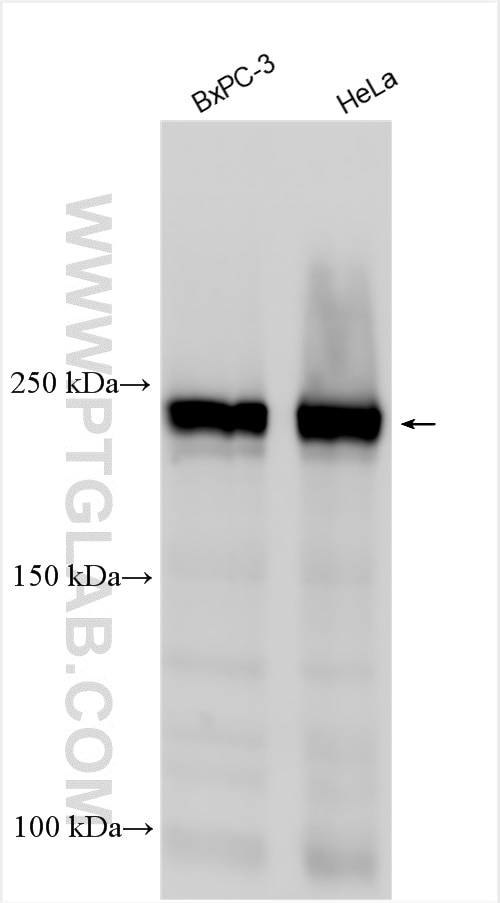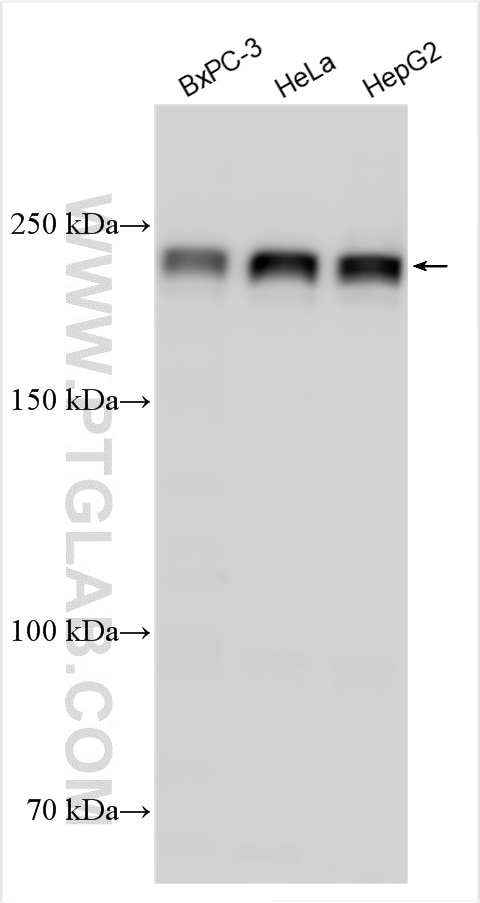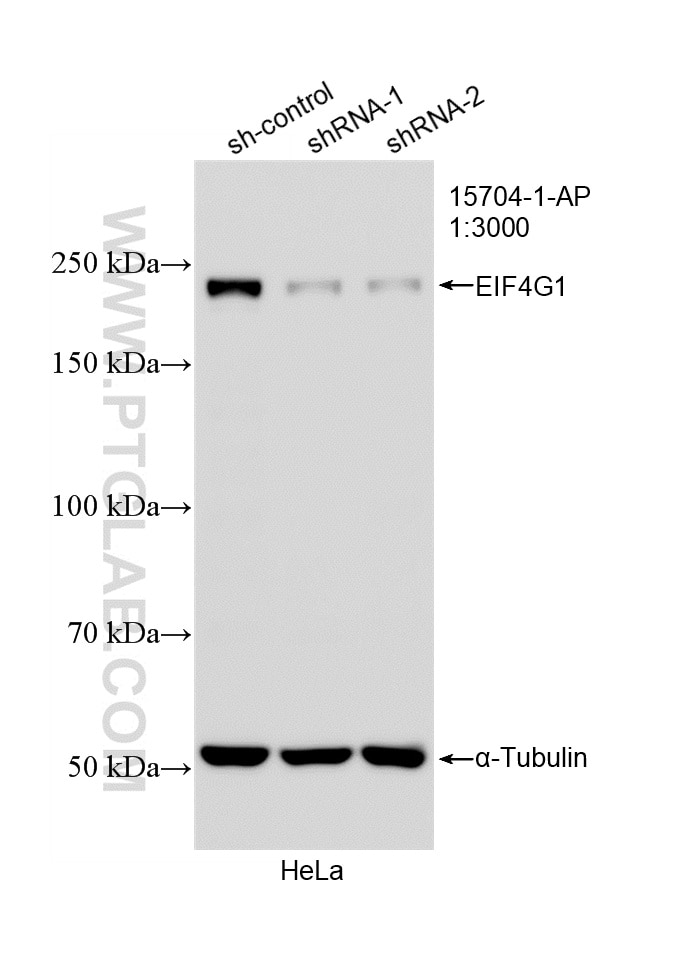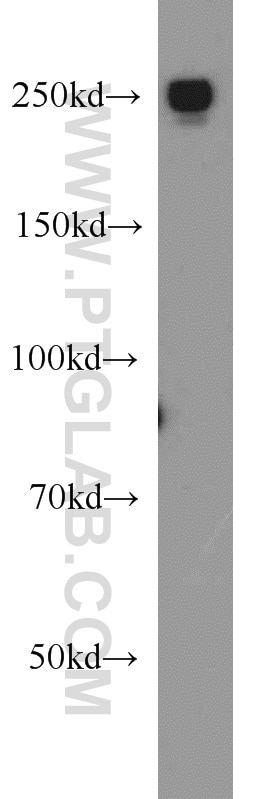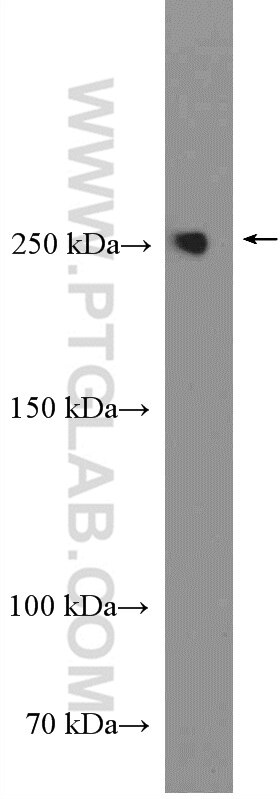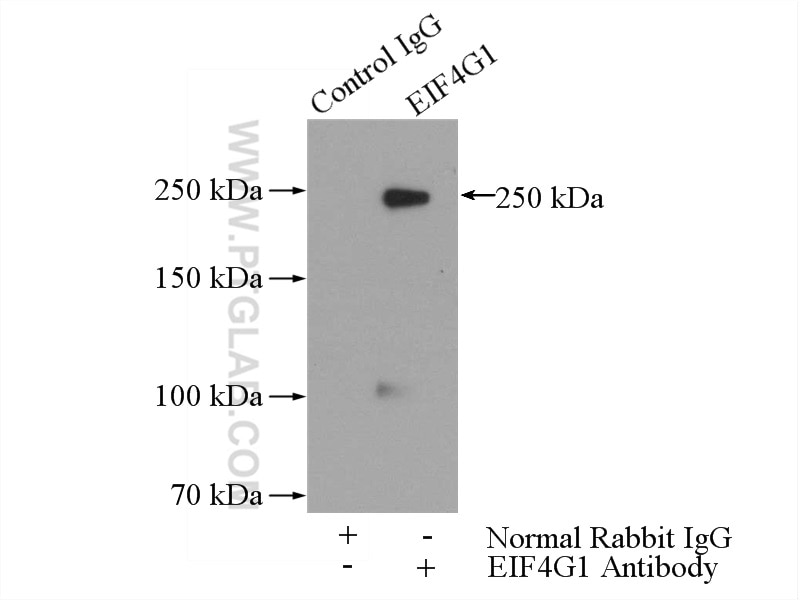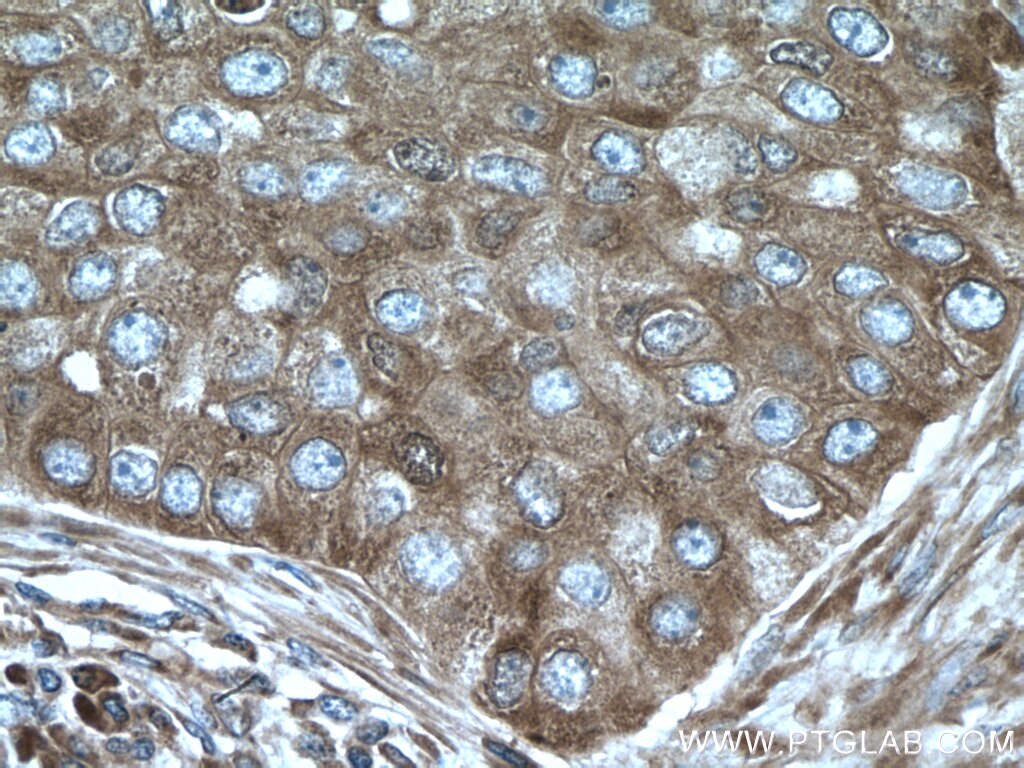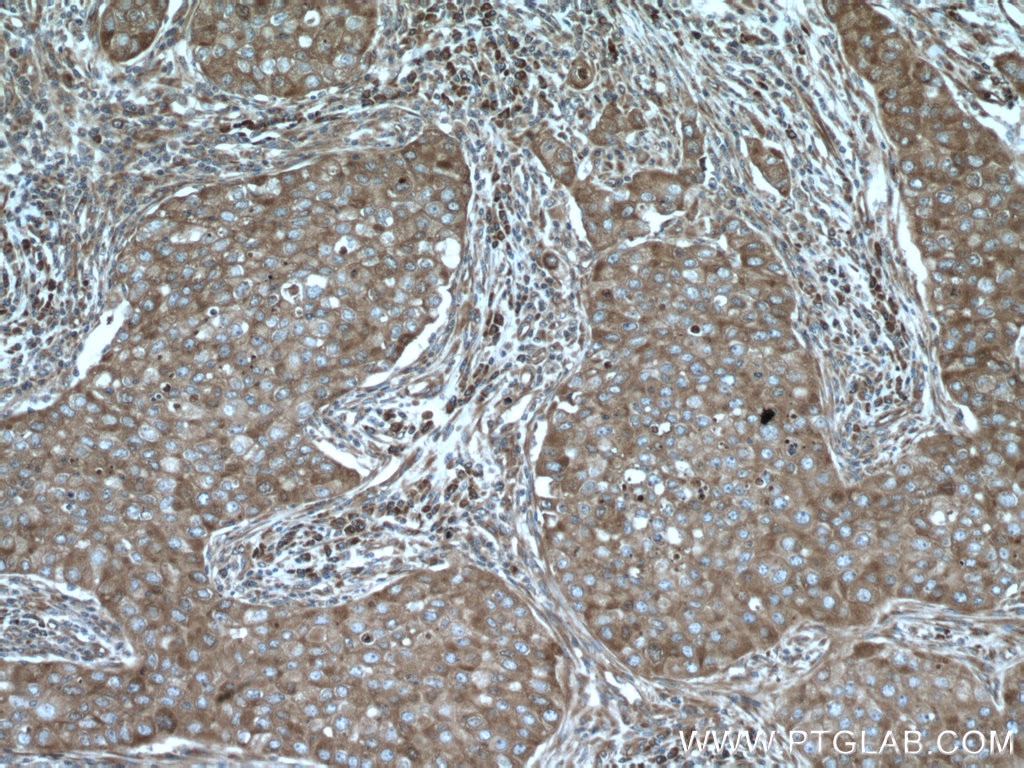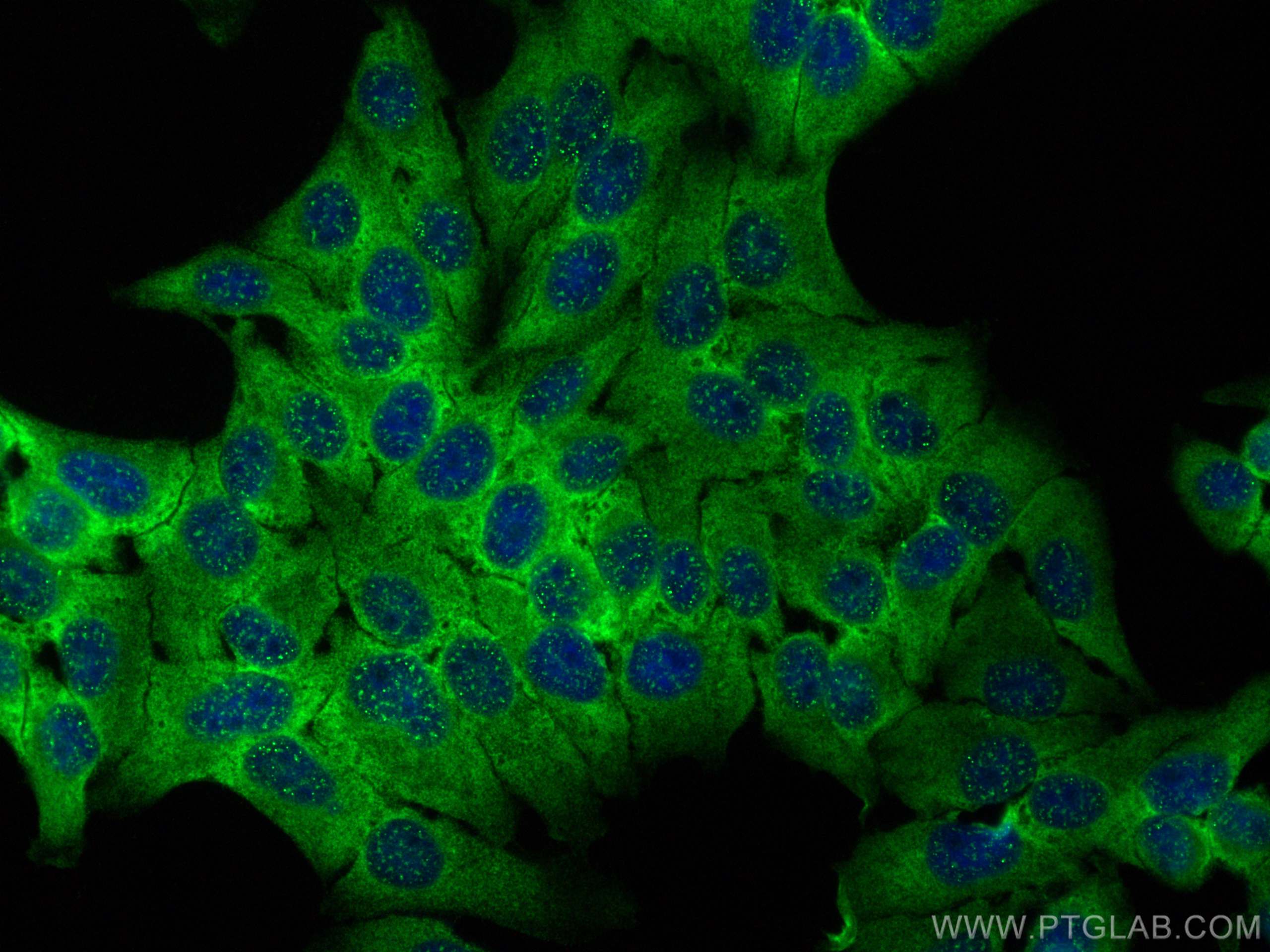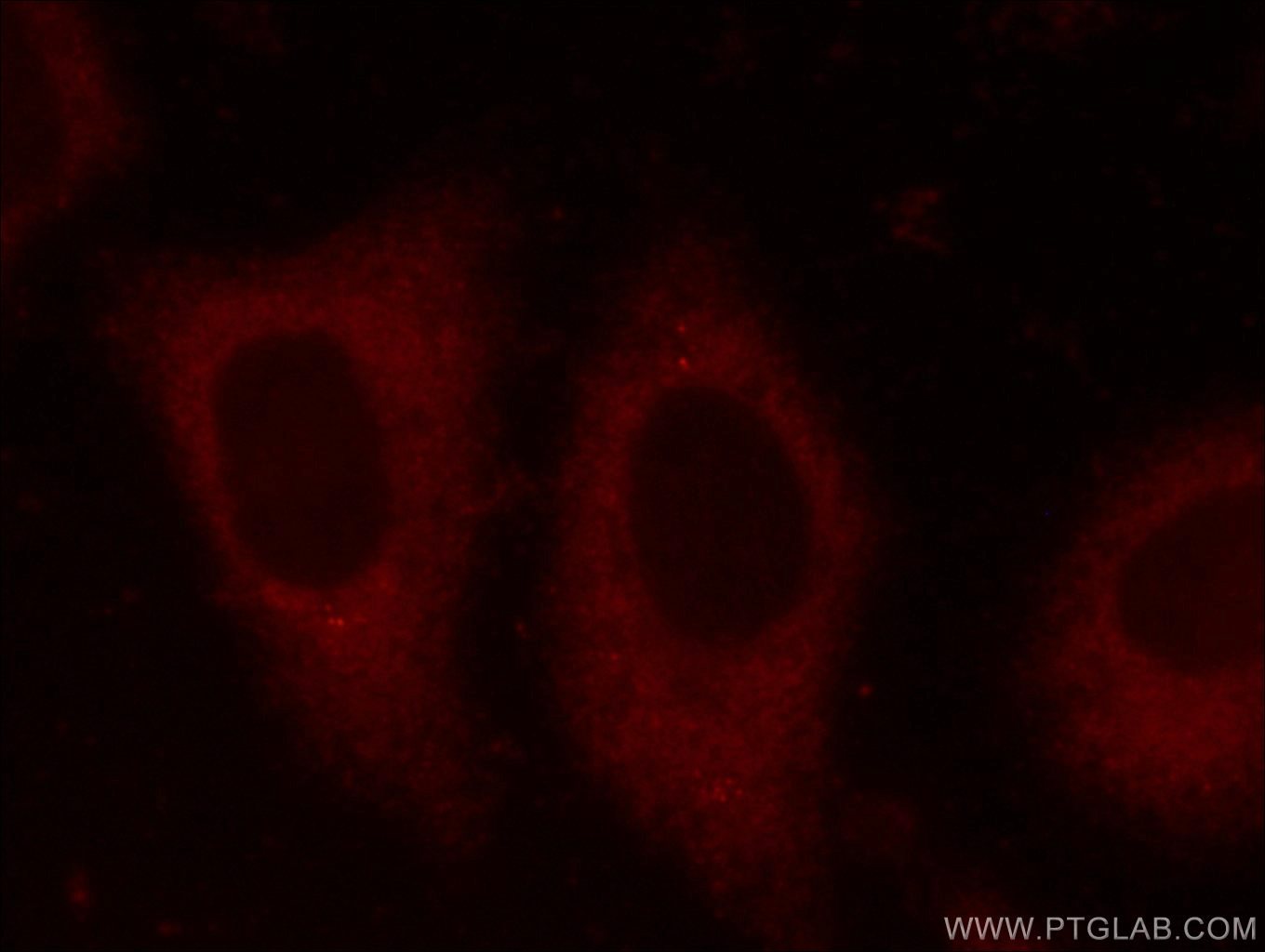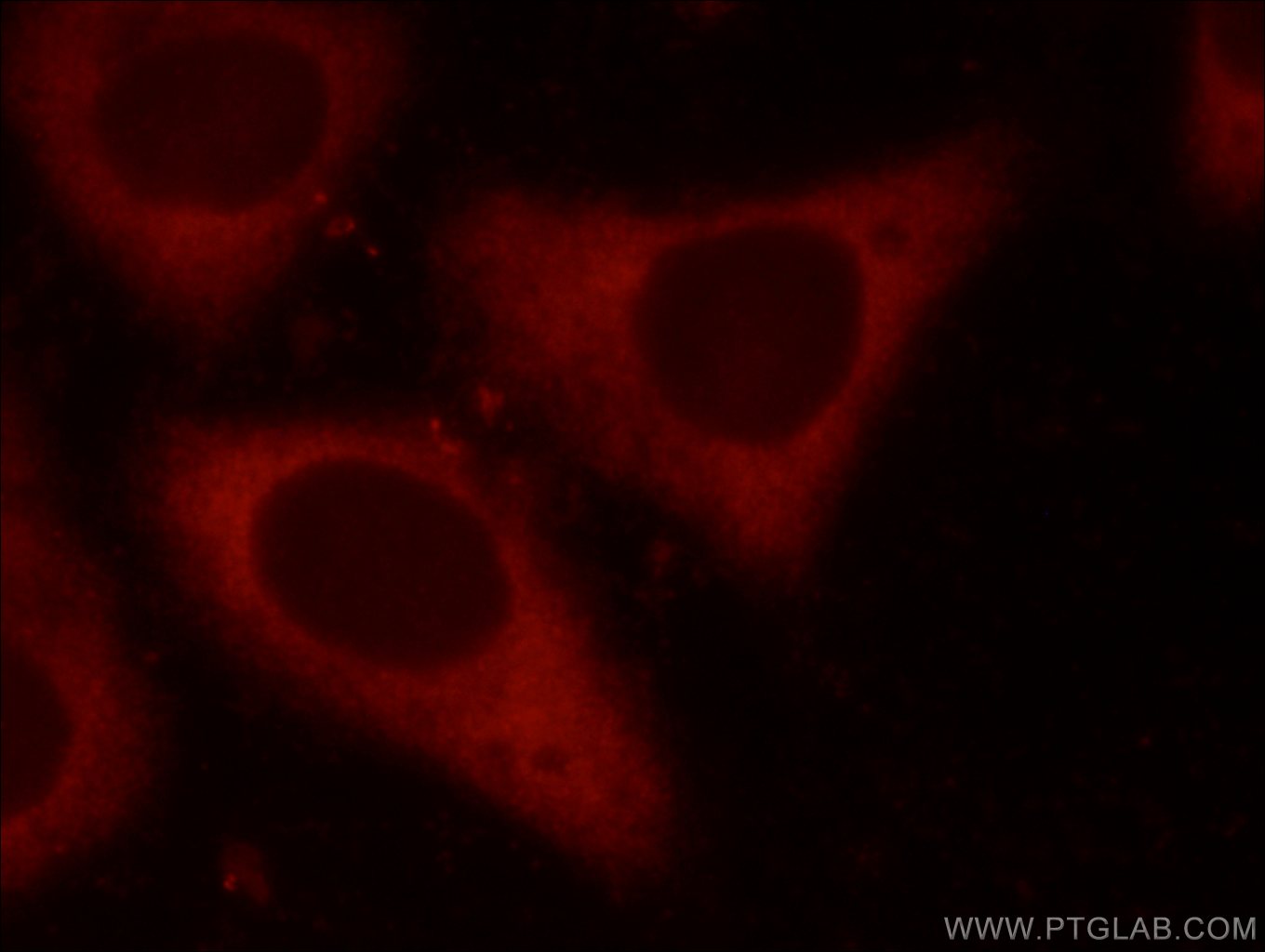Tested Applications
| Positive WB detected in | BxPC-3 cells, HeLa cells, HepG2 cells |
| Positive IP detected in | HeLa cells |
| Positive IHC detected in | human breast cancer tissue Note: suggested antigen retrieval with TE buffer pH 9.0; (*) Alternatively, antigen retrieval may be performed with citrate buffer pH 6.0 |
| Positive IF/ICC detected in | HepG2 cells, Ethacrynic acid treated HepG2 cells |
Recommended dilution
| Application | Dilution |
|---|---|
| Western Blot (WB) | WB : 1:2000-1:16000 |
| Immunoprecipitation (IP) | IP : 0.5-4.0 ug for 1.0-3.0 mg of total protein lysate |
| Immunohistochemistry (IHC) | IHC : 1:50-1:500 |
| Immunofluorescence (IF)/ICC | IF/ICC : 1:50-1:500 |
| It is recommended that this reagent should be titrated in each testing system to obtain optimal results. | |
| Sample-dependent, Check data in validation data gallery. | |
Published Applications
| KD/KO | See 1 publications below |
| WB | See 20 publications below |
| IHC | See 4 publications below |
| IF | See 7 publications below |
| IP | See 1 publications below |
| CoIP | See 1 publications below |
Product Information
15704-1-AP targets EIF4G1 in WB, IHC, IF/ICC, IP, CoIP, ELISA applications and shows reactivity with human samples.
| Tested Reactivity | human |
| Cited Reactivity | human, mouse, pig |
| Host / Isotype | Rabbit / IgG |
| Class | Polyclonal |
| Type | Antibody |
| Immunogen |
CatNo: Ag8342 Product name: Recombinant human EIF4G1 protein Source: e coli.-derived, PGEX-4T Tag: GST Domain: 296-645 aa of BC007788 Sequence: IEEYLHLNDMKEAVQCVQELASPSLLFIFVRHGVESTLERSAIAREHMGQLLHQLLCAGHLSTAQYYQGLYEILELAEDMEIDIPHVWLYLAELVTPILQEGGVPMGELFREITKPLRPLGKAASLLLEILGLLCKSMGPKKVGTLWREAGLSWKEFLPEGQDIGAFVAEQKVEYTLGEESEAPGQRALPSEELNRQLEKLLKEGSSNQRVFDWIEANLSEQQIVSNTLVRALMTAVCYSAIIFETPLRVDVAVLKARAKLLQKYLCDEQKELQALYALQALVVTLEQPPNLLRMFFDALYDEDVVKEDAFYSWESSKDPAEQQGKGVALKSVTAFFKWLREAEEESDHN Predict reactive species |
| Full Name | eukaryotic translation initiation factor 4 gamma, 1 |
| Calculated Molecular Weight | 1600 aa, 176 kDa |
| Observed Molecular Weight | 230-250 kDa |
| GenBank Accession Number | BC007788 |
| Gene Symbol | EIF4G1 |
| Gene ID (NCBI) | 1981 |
| RRID | AB_2261979 |
| Conjugate | Unconjugated |
| Form | Liquid |
| Purification Method | Antigen affinity purification |
| UNIPROT ID | Q04637 |
| Storage Buffer | PBS with 0.02% sodium azide and 50% glycerol, pH 7.3. |
| Storage Conditions | Store at -20°C. Stable for one year after shipment. Aliquoting is unnecessary for -20oC storage. 20ul sizes contain 0.1% BSA. |
Background Information
Eukaryotic cellular messenger RNAs are posttranscriptionally modified by addition of an m(7)GTP moiety to the 5-prime terminus, referred to as a cap. Recognition of the cap structure and unwinding of mRNA secondary structure during the initiation phase of protein synthesis is catalyzed by initiation factors of the eIF4 group. EIF4G1, a subunit of eIF4 gamma, forms various complexes with the other eIF4 polypeptides [PMID: 7601469]. Mutations in the EIF4G1 gene, encoding a component of the eIF4F translation initiation complex, were recently reported as a possible cause for the autosomal dominant form of Parkinson's disease [PMID:22658323]. The calcualted molecular weight of EIF4G1 is 175 kDa, but modified EIF4G1 is about 220-240 kDa. (PMID: 18426977 )
Protocols
| Product Specific Protocols | |
|---|---|
| IF protocol for EIF4G1 antibody 15704-1-AP | Download protocol |
| IHC protocol for EIF4G1 antibody 15704-1-AP | Download protocol |
| IP protocol for EIF4G1 antibody 15704-1-AP | Download protocol |
| WB protocol for EIF4G1 antibody 15704-1-AP | Download protocol |
| Standard Protocols | |
|---|---|
| Click here to view our Standard Protocols |
Publications
| Species | Application | Title |
|---|---|---|
Mol Cell The oncomicropeptide APPLE promotes hematopoietic malignancy by enhancing translation initiation. | ||
J Extracell Vesicles Extracellular vesicles rich in HAX1 promote angiogenesis by modulating ITGB6 translation. | ||
Proc Natl Acad Sci U S A Cellular cap-binding protein, eIF4E, promotes picornavirus genome restructuring and translation. | ||
PLoS Genet SAMHD1 Inhibits LINE-1 Retrotransposition by Promoting Stress Granule Formation. | ||
Diabetes Translational Factor eIF4G1 Regulates Glucose Homeostasis and Pancreatic β-Cell Function.
| ||
Virol Sin Baicalein suppresses Coxsackievirus B3 replication by inhibiting caspase-1 and viral protease 2A |

